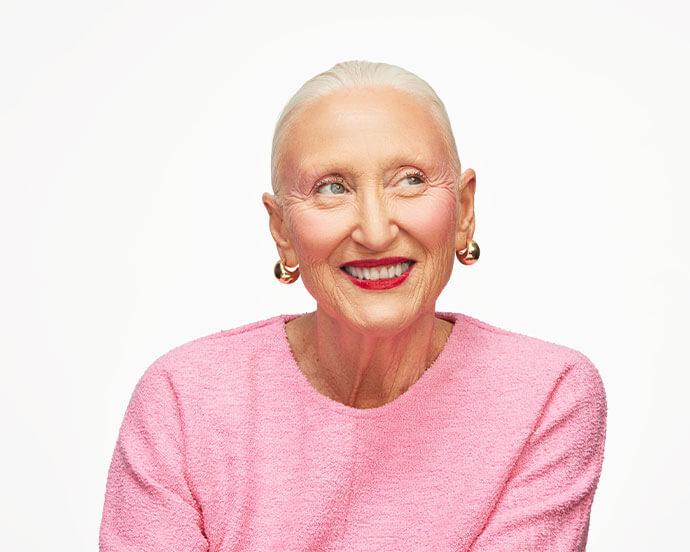Get Clear Skin in No Time With the These 11 Dermatologist-Approved Tips



IPSY Editors


Whether your experiences with acne are occasional or constant, we all have to deal with breakouts at some time or another. Unfortunately, this frustrating (and super common) skin concern can feel as easy to solve as a Rubik's cube. Sometimes you have no idea where to start and you try so many different combinations of products and treatments that you end up worse off than when you started.
If you're looking to achieve healthy, clearer skin, we have a few key pointers you'll want to keep in mind as you establish a skincare routine. Read on for 11 expert-approved tips that may help you banish stubborn acne and finally create that glowing, clear complexion you've been after.


It's about glam time you treated yourself.
MEET THE EXPERT
Hadley King, MD, is a New York City-based board-certified dermatologist. She is also a clinical instructor of dermatology at the Weill Medical College of Cornell University.
1. First of all: Don’t pick (seriously).
Picking at a blemish is undeniably tempting. However, this is one skincare habit that will almost always do more harm than good. "When you pick, you are increasing the risk of inflammation and infection, which increases the healing time and the chances of getting discoloration and scarring,” explains King.
This is advice many of us have likely heard before and admittedly have failed to follow. So here's a suggestion: try using acne patches to create a physical barrier between your fingertips and the blemish. As an added bonus, these patches come formulated with acne-fighting ingredients. For example, the HERO COSMETICS Mighty Patch Invisible+ acne patches feature hydrocolloid which absorbs excess fluid such as oil to flatten spots faster and reduce inflammation and redness.
2. Be selective about your cleanser.
By now most of us know how important it is to wash your face before bed—even on those nights when you really don't feel like it. But do you know if you're using the right cleanser for your skin type? This foundational skincare product is a great way to get your nightly routine started off on the right note. For acne-prone skin types, King says, “You need to find ingredients and formulations that work for you, and don't contribute to making [acne] worse.” says King. The key is finding a formula that will subtly fight blemishes without drying out the skin. Her suggestion: a salicylic acid cleanser. “Salicylic acid can penetrate pores to gently exfoliate and remove sebum,” says King. That means this multitasking beta-hydroxy acid (BHA) can fight active acne breakouts while also keeping new ones from forming.
3. Yes, you should still use moisturizer.
For those with blemish-prone skin, moisturizer may initially seem like a no-go. Don't these thick, heavy creams clog pores? While some moisturizer formulas certainly may not mesh well with this skin type, all skin types benefit from hydration. In fact, when the skin is dehydrated it often overcompensates by creating excess sebum (the skin's natural oil), which can then lead to breakouts. So sometimes, oily skin may actually be a result of dryness.
When looking for a moisturizer for acne-prone skin, it can be a good idea to look for a gel moisturizer. These formulas are often oil-free, lightweight, and non-comedogenic (meaning they won't clog pores). Some formulas like HEY HONEY Relax! Propolis & Honey Soothing Moisturizer are even made with healing and antibacterial hero ingredients to soothe breakouts while hydrating skin—a real multitasking win.
4. Give your skin time to adapt to new products.
It can be tempting to try a skincare product a few times and then decide whether or not the active ingredients do or don't work for your skin. But King notes: “Active ingredients often take time to have significant results. It's fair to give a skincare product four to six weeks to judge the impact on your skin.” Skincare often involves playing the long game. You may need to stick with a regimen for a while to see results. And when you do begin to notice a change, be sure to stick with that new skincare routine.
After this point though, if a product doesn’t appear to agree with your skin, ditch it. “If after four to six weeks you are not satisfied with the results, then consider changing products. And of course, if you are unable to tolerate a product, then it is best to stop using it right away,” advises King.
5. Don't underestimate the power of beauty sleep.
“Sleep is critical for the healing and repair of damaged tissues,” says King. “During sleep our bodies produce fewer stress hormones and more growth and body-repairing hormones, allowing damaged skin cells to be repaired.” She adds that “The body also rebalances its hydration during sleep. Overnight beauty products can take advantage of these factors to help promote the repair of damaged tissues and to improve the moisture balance of the skin.”
To capitalize on this naturally occurring process, you might try applying a sleep mask before bed like the COCOKIND Resurfacing Sleep Mask. Made with bakuchiol (a natural alternative to retinol), this mask's key ingredient encourages cell turnover, reduces wrinkles and dark spots, and fights blemishes to help you wake up with your best skin yet.
6. The right toner can supercharge your skincare routine.
If the thought of using a toner makes you wince, know this: the often misunderstood skincare product has had a full glow up since the ultra-drying formulas of the early '00s.
The toners of today are noticeably gentler and more customizable to specific skincare concerns. This revamp has largely been influenced by the science-forward Korean beauty industry.
“In Korean beauty, and in the newer generation of American skincare, toners are generally less harsh. They're intended to prep the skin for the next step. They can be either hydrating or exfoliating but even the ones with active exfoliating ingredients are still designed to contribute to the moisture barrier of the skin, not detract from it,” says King.
For acne-prone skin types, a toner made with a chemical exfoliant like AHAs and/or BHAs can help keep build-up to a minimum so that pores stay clear and future pimples get squashed before they even have a chance to form. One of our favorite toners: the YOUTH TO THE PEOPLE Kombucha + 11% AHA Exfoliation Power Toner. This formula pairs exfoliating glycolic acid with balancing probiotics to keep skin clear and balanced.
7. Sunscreen, sunscreen, sunscreen.
We've said it before and we'll say it again: there's no underestimating the importance of SPF. “Sun protection and sun-smart behaviors are the most important thing you can do to help prevent sun damage, premature aging of the skin, and discolorations,” stresses King.
As effective as this essential is to fighting skin cancer and signs of aging, it is true that certain sunscreen formulas can worsen acne. To protect your skin while also preventing a breakout, King suggests reaching for a mineral broad-spectrum sunscreen. She notes that the two primary ingredients in mineral-based sunscreens (zinc oxide and titanium dioxide) are both non-comedogenic, meaning they won't clog pores.
It's also important to remember that sunscreen has a shelf life. If a formula used to work flawlessly with your skin and is suddenly causing trouble, check the expiration date. Most mineral sunscreens are good for about two to three years after the manufacturing date before the ingredients begin to degrade, after which they can cause breakouts and irritations.
8. An occasional face mask can make all the difference.
When in doubt, mask it out. Whether you're struggling with an acne flare-up, or you're looking to keep your complexion extra balanced, face masks offer a concentrated dose of active ingredients that can tackle both of those tasks. The best face masks for acne often feature ingredients like salicylic acid, sulfur, or tea tree oil. “Clay and charcoal are also popular ingredients because they absorb sebum and have antibacterial, antifungal, and anti-inflammatory properties," says King. "[They] are great choices for oily and acne-prone skin. However, if you have combination or dry skin, try using clay formulas only on affected areas to avoid over-drying skin. “Depending on the formulation, they can be too drying for dry or sensitive skin and caution should be used to not leave the clay-based product on for too long to avoid extra drying.”
One clay mask we love: the GENERATION SKIN Urban Defense Purifying Pink Clay Mask. Made with clarifying clay, vitamin A, and antibacterial old man weed (Centipeda cunninghamii), this mask draws out impurities, encourages cell turnover, and keeps acne-causing bacteria in check. If blackheads tend to be your biggest skincare woe, the CAOLION Blackhead O2 Bubble Pore Mask uses micro-oxygen bubbles to gently purify pores to eliminate blackheads, whiteheads, and build-up.
9. Wash your makeup brushes.
You can try all the acne treatments in the world, but if you're topping your carefully curated skincare routine off a makeup routine that includes using dirty makeup brushes, you're definitely sabotaging your skin.
Makeup brushes can be a magnet for dirt, bacteria, and grime. If you're wiping these all over your skin, it will inevitably end up causing clogged pores and irritation. Need a little help learning how to clean your makeup brushes like a pro? Lucky for you, we've got a guide on how to do just that.
10. Keep your skin's oil production in check.
If the skin's sebum goes into overdrive, that excess oil is often what can clog pores and cause blemishes. One potential solution: find a way to control excess oil. Enter, niacinamide, a powerhouse skincare ingredient that has the ability to regulate oil production. On top of that, niacinamide can also tame redness, reduce the appearance of pores, and repair the skin's moisture barrier (which may be super helpful if you've been going a little bit too hard on the acne treatments).
There are a handful of ways to incorporate this mega-multitasking ingredient in your daily skincare routine, but to get the most potent results, a serum is likely to be your best bet. The INSTANATURAL Age-Defying & Skin Clearing Serum pairs niacinamide with an acne-fighting dream team of salicylic acid, retinol, vitamin C, and hyaluronic acid to promote clear, hydrated skin.
11. Doctor knows best.
Sometimes, you've tried every vitamin C serum, every antioxidant potion, and every spot treatment, and those pesky zits still keep coming back. In cases where over-the-counter or DIY treatments just aren't cutting it, it can be helpful to pay a visit to a dermatologist. They may be able to help you get to the root of the issue and, in certain cases, may also be able to prescribe a retinoid or oral medication that can best treat your acne-prone skin.
Want to discover all the best complexion-clearing skincare products? Take our Beauty Quiz now to get started. Already an Ipster? Refer your friends to earn points, which you can use toward products. Either way, don’t forget to check us out on Instagram and Twitter @IPSY.
Like this article? Share it with your friends by clicking the icons below!
Liked this post? Share!
Related Stories


Skin
How to Adjust Your Skincare Routine for Mature Skin in the Winter
Published on Dec 4, 2025 • 7 min read


Skin
Meet the Best Moisturizers for Winter, According to Dermatologists
Published on Dec 1, 2025 • 9 min read


Skin
What Is Inflammaging—and Why Everyone’s Talking About It
Published on Dec 1, 2025 • 8 min read


Skin
6 Skincare Trends to Have on Your Radar in 2026, According to Experts
Published on Dec 1, 2025 • 7 min read


Skin
We Grabbed Our Crystal Ball and Found These 6 Skincare Predictions for 2025
Published on Dec 10, 2024 • 7 min read


Skin
Simple Self-Care Tips That Actually Make a Difference
Published on Nov 13, 2025 • 12 min read


Skin
These 9 Face Scrubs Will Unlock Soft and Smooth Skin on Contact
Published on Nov 5, 2025 • 10 min read


Skin
10 Thanksgiving Foods That Will Have Your Skin Coming Back for Seconds
Published on Oct 15, 2025 • 7 min read


Beauty Picked Just for You
Get 5 products worth up to $70
Plus exclusive access to epic deals up to 80% off
Starting at just $14/month. Cancel anytime.